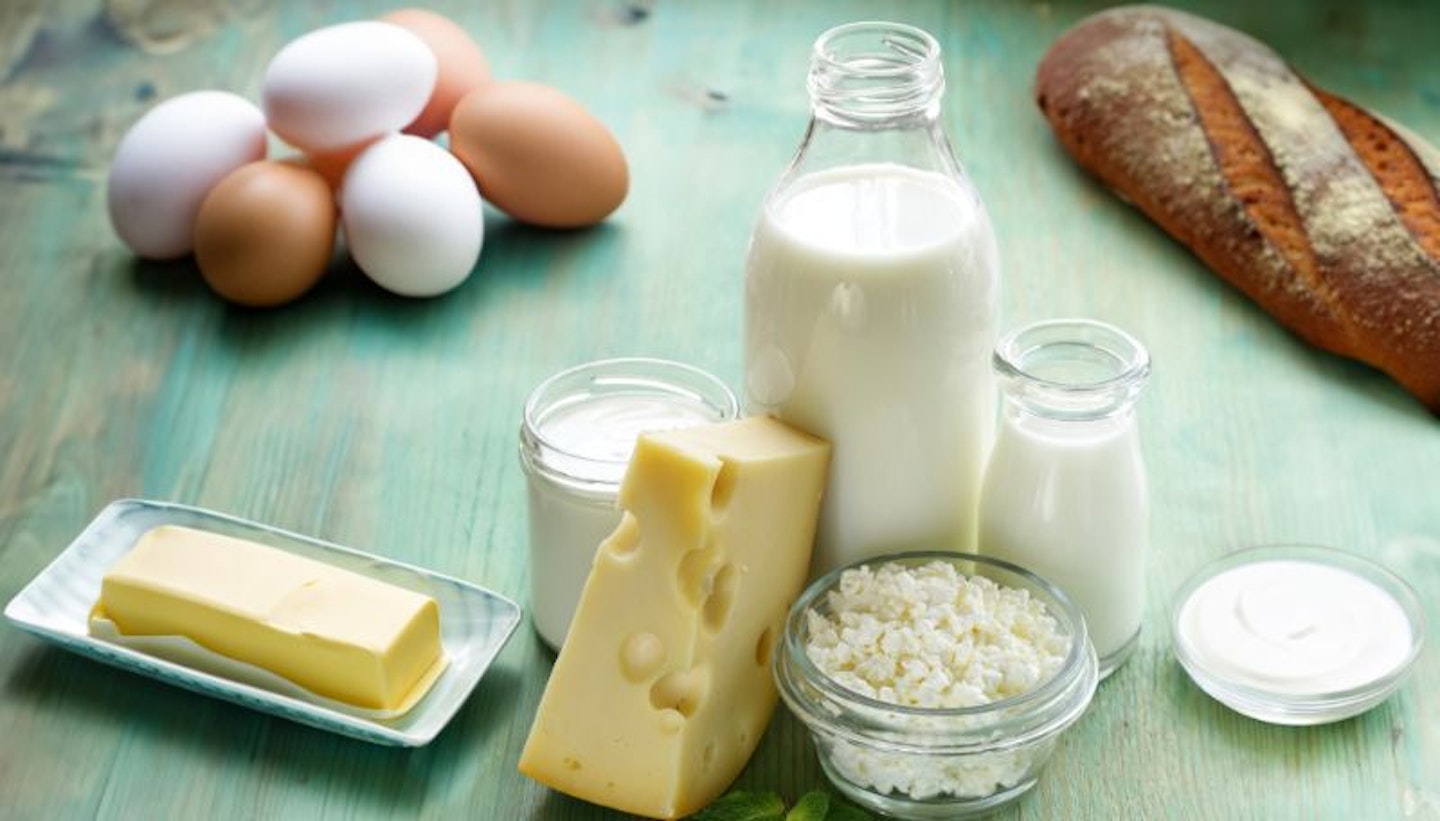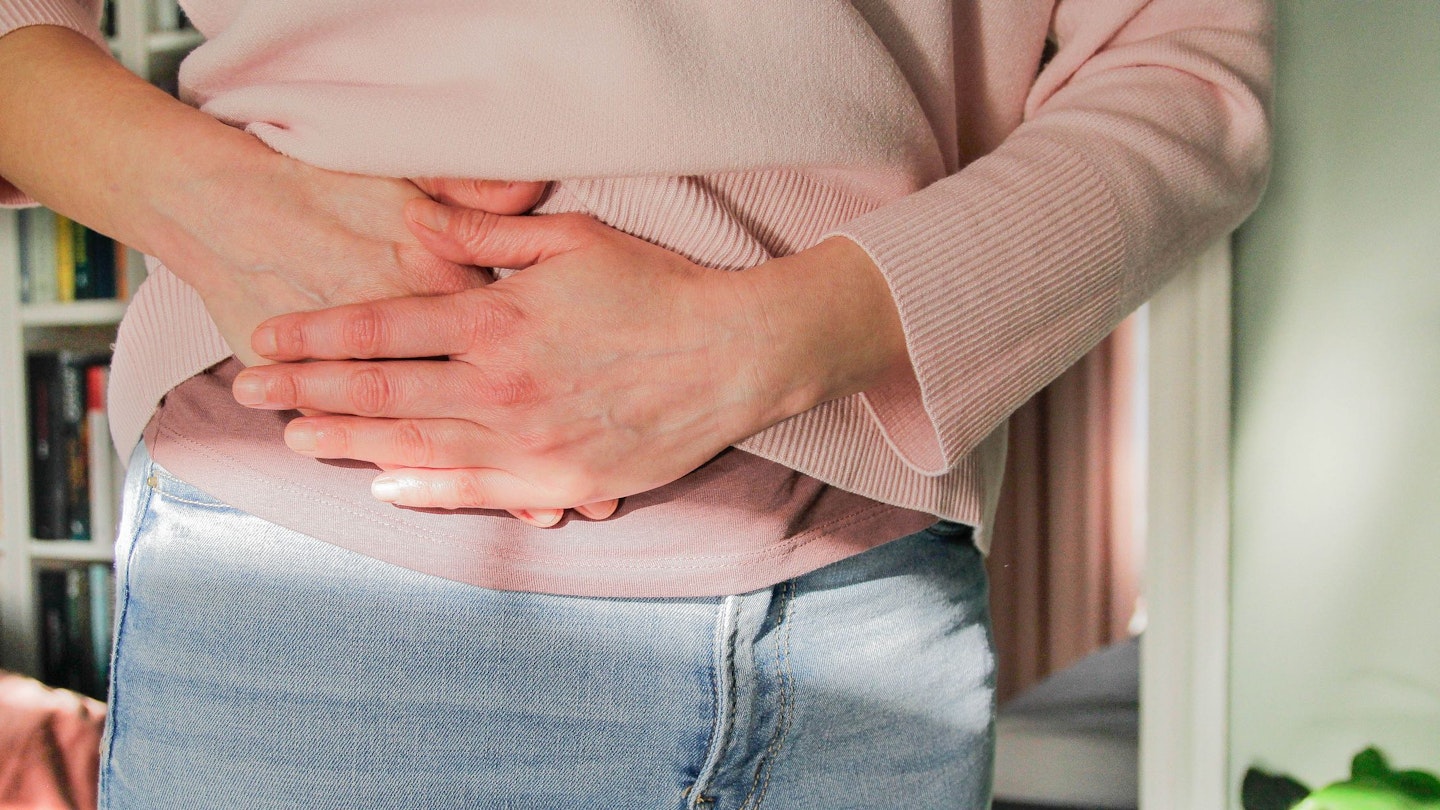An exciting new study has found a link between drinking milk and a lower risk of bowel cancer, thanks to the calcium in dairy products. We always love discovering that an easy habit change can have a big health impact, and what could be simpler than an extra glass of milk? We’ve spoken to the experts to find out how to get the benefits ahead of Bowel Cancer Awareness Month, which runs in April.
Can calcium reduce your risk of bowel cancer?
In all likelihood – yes, according to the new study, which was designed to see how people’s diet could impact their risk of colorectal cancer.
‘This research provides strong evidence that adding calcium to your diet could help reduce the risk of bowel cancer,’ says Sophia Lowes, senior health information manager at Cancer Research UK. And the good news is, vegans and people who are lactose intolerant don’t need to miss out. ‘The study found that calcium had a similar effect from both dairy sources and non-dairy sources. Calcium can be found in dairy products like milk and yoghurt, as well as non-dairy foods like leafy green vegetables.’
However, it’s unclear at the moment whether the same benefits could be found from calcium supplements, as the study only looked at calcium found in food and drink.
It's also unclear whether people from different backgrounds would benefit more than others from upping their calcium, but there may be more to discover in years to come. ‘This study forms a basis for future research into whether the beneficial effects of calcium on bowel cancer risk is the same across more diverse groups,’ says Sophia. ‘But we know that eating a healthy diet is a great way for anyone to reduce their risk of bowel cancer. Dairy products are good sources of calcium, and it’s recommended to have three portions of dairy a day, such as a glass of semi-skimmed milk, a pot of yoghurt, or a small piece of cheese. If you can’t or choose not to eat dairy, calcium-fortified dairy alternatives can be good sources of protein and calcium too.’

What else can lower your bowel cancer risk?
In general, it pays to maintain a healthy diet for a lower cancer risk. ‘This includes cutting down on alcohol and red and processed meat, and eating lots of fruit, vegetables, and wholegrains,’ says Sophia. While dairy can help, it’s not a ‘cure-all’ if the rest of your diet is poor.
‘In general, it's still our overall diet that is more important than any one food or nutrient when it comes to reducing the risk of bowel cancer,’ says Sophia. ‘Alongside this, keeping a healthy weight, stopping smoking, and being physically active are other changes you can make to reduce the risk of bowel cancer.’
Bowel cancer can affect anyone
There is a misconception, according to Sophia, that bowel cancer only affects people in later life. Unfortunately, that isn’t the case. ‘It is more common in people over 50 but it can affect anyone of any age,’ she says. In fact, there has been a small increase globally in rates of early onset bowel cancer among those aged 25-49. ‘There isn’t a clear answer to what’s causing the rise - population growth accounts for part of it, but preventable risk factors, genetics and improvements to early detection might also play a role,’ says Sophia. ‘There is no strong evidence microplastics are behind the rise in early onset bowel cancers. And so far, the evidence that ultra-processed foods cause cancer isn’t strong enough either. But these highly processed foods do tend to be high in salt, sugar and saturated fats, which can make it harder to keep a healthy weight, and we know that overweight and obesity increases the risk of bowel cancer.’
It’s therefore important for everyone to be aware of the potential signs, as early diagnosis can make a huge difference to outcomes. ‘When diagnosed at its earliest stage, around nine in 10 people will survive the disease for five years or more, compared with around one in 10 people when the disease is diagnosed at the latest stage,’ says Sophia.
Bowel cancer signs and symptoms
The first thing to be aware of is any change in your bowel habits. Including: ‘needing to go for a poo more often, looser poo or feeling like you haven't emptied your bowels properly, as well as bleeding from your bottom or finding blood in your poo,’ says Sophia. ‘There can also be more general signs, such as unexplained tiredness or breathlessness, and losing weight without trying to.’ But she’s quick to point out that there are often much less sinister reasons for these symptoms, so it’s not worth worrying unnecessarily – visit your GP and hopefully your mind can be set at rest.
Ultimately, anything out of the ordinary is worth a check. ‘You know your body best, so if you notice any changes that are not normal for you, or something that won’t go away, don’t ignore it, speak to your doctor,’ says Sophia. ‘In most cases, it won’t be cancer, but if it is, spotting it early can make a real difference.’

What are the current bowel cancer treatments?
If you, or someone you know, is affected by bowel cancer, treatments can vary. ‘Treatment for bowel cancer can include chemotherapy, surgery, targeted cancer drugs, immunotherapy and radiotherapy,’ says Sophia. ‘The type of treatment depends on whether you have colon or rectal cancer, as well as the stage it is discovered. When colon and rectal cancer spread to another part of the body it is called advanced bowel cancer.’
If you need information or support, you may find it helpful to talk things through with one of the nurses on the Cancer Research UK helpline. It’s freephone 0808 800 4040 and the lines are open from 9am - 5pm Monday to Friday.
Lizzy Dening is an award-winning journalist and has spent many years working for Yours magazine both in-house and as a freelance writer and editor. Her specialisms include health and fitness, interviews (both real life and celebrity) and women’s issues. She’s also written for publications including Grazia, Vogue and the Guardian.
